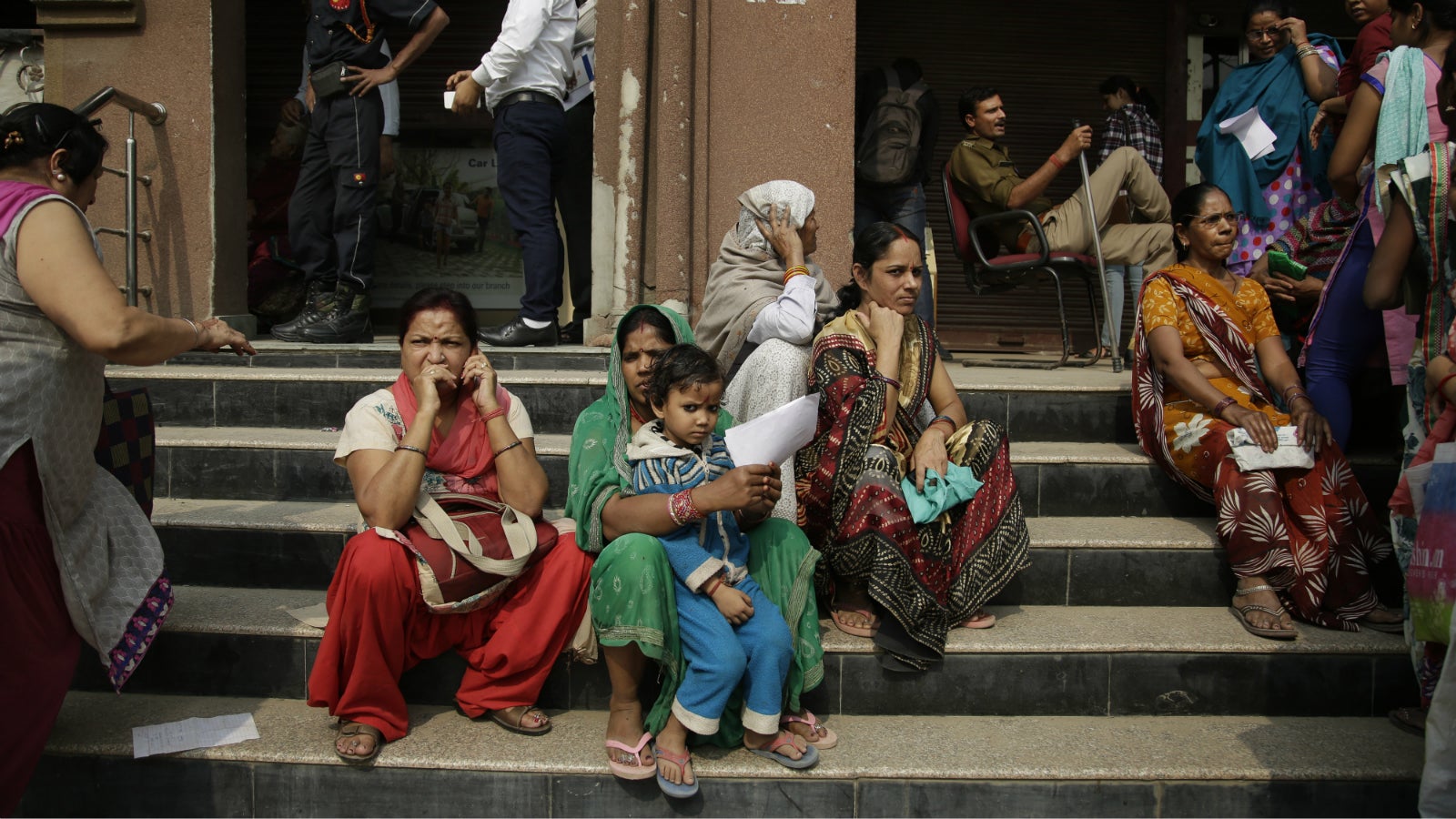Amid India’s cash crunch, cases of domestic violence spiked
Housewives in Bhopal, capital of the state of Madhya Pradesh, paid a hefty price for India’s move to ban high-value currency notes.


Housewives in Bhopal, capital of the state of Madhya Pradesh, paid a hefty price for India’s move to ban high-value currency notes.
Cases of domestic violence spiked in November after the Narendra Modi government banned 86% of the country’s cash in circulation by value, data by One Stop Crisis Centre (OSCC), an organisation for protecting women’s rights in the city, shows. Coming across the money women had saved up over the years without informing them or other members of the family, their husbands resorted to verbal and physical abuse and threats, The Indian Express newspaper reported on Feb. 07.
Calls to OSCC’s toll-free crisis number, which allows women to report cases of rape, violence, and dowry, more than doubled in the month of November to 1,200. Of these, 230 needed counselling, officials at the NGO said. Among those counseled, about 50% said they were subjected to violence after demonetisation.
Demonetisation of the Rs1,000 and Rs500 notes unleashed chaos in the country as people formed long queues outside ATMs and banks—scores even losing their lives in the melee. For some, though, the frustration crept closer home.
Indian housewives typically save small amounts of money from the allowance they receive to run the household. For millions of these women, such cash—stashed away in kitchen jars, closets, and boxes—turns into sizeable savings over the years.
But with the notes in their savings rendered illegal overnight, these women were forced to reveal these funds to their husbands, leaving them vulnerable. “The wives used to save money in the past, too, but it never came to light. Overnight, they became criminals in the eyes of their husbands,” Sarika Sinha, regional director of Action Aid, an NGO that runs the OSCC “Gauravi” centre, told The Indian Express.
Cases registered with OSCC ranged from men forcing women out of homes, to denial of money for day-to-day expenses. Some men even threatened to send them to jail for hoarding cash. The situation worsened as thousands of men, especially daily wagers, suffered job losses after the note ban.